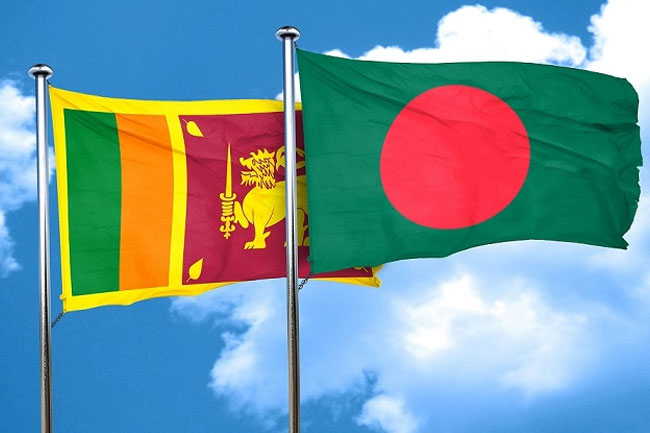By: Staff Writer
October 31, Colombo (LNW): Bangladesh and Sri Lanka are actively working to expedite negotiations on a Preferential Trade Agreement (PTA) to unlock substantial potential in bilateral trade.
This focus was underscored during a recent meeting between Sri Lankan High Commissioner to Bangladesh, Dharmapala Weerakkody, and Bangladesh’s Foreign Secretary, Md. Jashim Uddin, held at the Foreign Ministry in Dhaka.
At this meeting, the foreign secretary highlighted ongoing reforms and priorities within Bangladesh’s interim government, aimed at ensuring transparent, inclusive elections.
Both countries reviewed existing agreements and pending Memorandums of Understanding (MoUs) and emphasized the importance of concluding critical agreements on coastal shipping, double taxation avoidance, and administrative assistance in customs.
They also discussed the necessity of convening Foreign Office Consultations to address broader aspects of bilateral relations. Following Sri Lanka’s upcoming parliamentary elections scheduled for November 14, new dates for these consultations are expected to be proposed.
A significant challenge for South Asian countries, including Bangladesh and Sri Lanka, is the region’s limited intra-regional trade, which remains below its full potential despite active trade partnerships. One of the reasons is similar production patterns and competing sectors.
The PTA discussions aim to address these issues, with both countries identifying ways to reduce trade costs. Detailed knowledge of products with high export potential is expected to inform the agreement and optimize economic benefits.
Since PTA discussions began in 2018, trade between the two countries has seen modest growth. In 2018, Sri Lankan exports to Bangladesh reached USD 133 million, while imports from Bangladesh were around USD 37 million.
Sri Lanka has consistently maintained a trade surplus with Bangladesh, which could help mitigate its own trade deficit concerns.
Sri Lanka’s list includes 925 products protected under the South Asian Free Trade Area (SAFTA), covering around USD 6.2 million or 23.8% of its imports from Bangladesh.
In contrast, Bangladesh’s sensitive list includes 993 items, accounting for USD 77.6 million or 62% of its imports from Sri Lanka. Thus, lifting or reducing sensitive lists could be advantageous, particularly for Sri Lanka.
For Sri Lanka, the PTA could increase involvement in production value chains, particularly in textiles, while also building on financial support provided by Bangladesh during Sri Lanka’s recent foreign currency shortage.
While removing sensitive lists might promote trade growth, political and economic considerations may prevent it. Both countries are expected to act defensively, as some sensitive list items are crucial for employment and revenue.
The success of the PTA will depend on how many high-export-potential products are included in the final agreement. For example, Sri Lanka’s “offensive list” includes products currently imported by Bangladesh from other global sources, where Sri Lanka has the production capability and a comparative advantage.
If tariffs on the sensitive lists are eliminated, there will be modest export gains for Bangladesh and Sri Lanka in absolute terms. Sri Lanka will gain USD 24.7 to 49.7 million of exports to Bangladesh, while Bangladesh will gain USD 2.1 to 4.5 million of exports to Sri Lanka.
Elimination of sensitive lists will generate a higher tariff revenue loss to Bangladesh, ranging between USD 13.5 million to USD 19.1 million. By contrast, Sri Lanka’s revenue loss will be slight at USD 1.4 million to USD 1.9 million.

